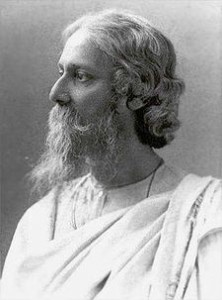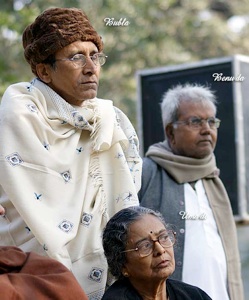It has been only about two months since I started this blog. So, I am only two months old as a writer here. Not a writer of fame. Not even a writer with published books. Just a guy that wrote a blog or two.
Yes, some of these blogs are musings, like a diary. This is one such. Then there are some postings that attempt to write about writing a novel. Still others seem to be part of a novel. Some are my perspective of the world around me.
I am essentially trying out my hand, playing a few practice games as it were. These trial runs may help make me a better writer in the eyes of the readers. Or perhaps I shall decide to write as a creative outlet, and not necessarily to please others.
But what should I write about? This is the sixty four thousand dollar question.
I have thought of writing a novel. I have actually done more than that. I have dabbled with it for a few months, going as far as two hundred pages, before tossing half of it out, and finally putting it in temporary cold storage.
The thing is – one could write a novel covering issues far removed from one’s own life. For example, I could write a science fiction, or a satirical comic book.
But then, I could also write a novel that borrows from my own life experience about the world as I see it. This choice is attractive to me because I already have certain lifetime exposures an developed an opinion about things. I am an opinionated person, did I mention that before?
But hang on – is my own life experience interesting enough to the reader? I have no blooming idea, but would guess in the negative. A reader would likely find my outrageous views and endless rambling quite a bellyful.
So, back to square one. Do I write for others, or do I write for myself? Most folks write or paint or create music such that others will not only enjoy it, but also hopefully pay for it. So, there is an economic prime mover hiding behind some of the creative outlets.
But, there must be exceptions. Vincent Van Gogh, I am told, never sold a painting in his lifetime, and died a poor man. In fact, the world is littered by painters, writers and musicians that died poor, but whose creations became famous after their death, enriching a group of middleman in the process. This probably goes to show that, if the meek fail to inherit the earth, the middlemen might.
So, if I wished, I could write on whatever took my fancy. I could write about my worries about the future of the planet through climate change and human encroachment into every niche and ecosystem. There are many that have already written on this. Perhaps I would merely add some noise in an already noisy field.
But then there is this habit of pundits of selectively focussing on only certain sections of the problem, while avoiding mention of the others. Very few in fact address the whole package.
Few, for example, blame it our on our perception of ourselves. Man has not evolved enough to question man’s own core belief about being a superior species who enjoys the right to let other species live of die, at whim. The mainstream thinking supports the notion that destroying a tiger, a whale, a forest, or even an entire species, is alright if it can save just a single human. Life of a single human is more sacrosanct than an entire species, or even a family of creatures. Our faith and our system dictates that we are the chosen people, by no less than God himself.
This, to me, is a laughable humbug and at the root of most injustices perpetrated by man – against another man, another creature or against nature. Religious leaders, Ethnic groups, Racial groups, Cultural groups, Economic groups, Politician, Social reformer, Writers and especially the foreign college educated smart Alec of the world lose their tongue and shy away from addressing this main question – why should man be more valuable than the rest of the planet?
So, with all due respect, the writers of this world have perhaps not done enough in this field either.
Sure, there are a few that did question this conventional wisdom. But the subject is basically under the radar for the masses – masses that are still intoxicated about God having created man after his own image, or about the importance of having a so called modern civilization, even if it destroys everybody’s habitat.
On websites dedicated to the environment, one can these days find new information, or “revised” assessment, of effect of an increasing human population on ecology. Folks are tiptoeing around the topic – too scared to call a spade a spade.
My thoughts would often stand at the edge of these dark and ominous issues that just would not go away. The state of the planet, the state of our society, the degenerating state of Santiniketan and the mindlessness of the Tagore chanting diaspora, the apathy of fellow humans, especially the selfish class that come to take advantage of the trappings of an advanced society, but refuse to give anything in return – these were depressing turns of events. They depress me. Yet I find myself unable to shut them out completely from my thinking. Thus, writing about it too provides an outlet.
I remember, three years ago, I was in Santiniketan during the annual fair in December, called Poush Mela. Originally this was conceptualized by Devendranath Tagore as a fair to let folks of different faith systems to exchange views and understand each other. This was later modified by his son Rabindranath Tagore to play a key role in revitalization of Bengal’s degenerating rural environment. This village fair was fine tuned to bring village goods, both material and cultural, to the urban clientele, and to raise awareness and appreciation of rural products, thus creating a market for it. This was supposed to provide a source of income for the craftsmen and artisans, and help sustain the lifestyle and creative vitality of the village, which would not just feed the cities with agricultural products, but also provide the source of its spiritual and artistic refinement.
Today’s December fair of Santiniketan, the so called Poush mela, is such a grotesque caricature that it may deserve a blog of its own – or rather, a book of its own. Urban products and services take precedence over rural products. Products from far off lands gets preference over local products. Rural craftsmanship and its support gets nothing more than lip service. Urbanized folks prepare “ethnic” looking goods, to sell to a new breed of ethno-conscious buying class. Babus come from afar, have a lot of fun, song and dance, take pictures, clap hands and cause a media blitz. The villager and his welfare, the original goal of the mela, is all but forgotten.
And the middle class Bengali crowd as well as the ex-student body, cannot get enough of this hideous caricature. There is no one, either in Santiniketan or outside it, to even think about the reason these events were designed. The decay of the original ideal is complete.
Anyhow, three years ago I was there. I remember being rather involved with a handful of friends in opening and running a stall at the Mela grounds, but one that did not sell anything. The stall provided quiet space ambience, free of charge, to help older generation ex-students to get to know the younger generation, as well as the locals of the area, both urban and rural. It broke from tradition and tried to do something different to facilitate human to human contact, hopefully removing cultural, generational and class barriers based on ignorance. That was to be our small contribution. We did not beg for donation and bore the cost ourselves.
But as it happened – there was another stall, in another location in the fair, that was promoted by ex-students. It presented attractive cultural items, music, speech and sold some books, paintings and such.
I was asked to take the microphone and speak something for ten minutes to the listening crowd. I started out, talking about our efforts to do something worthwhile and addressing some of the problems facing Santiniketan.
I was stopped in mid sentence, and was advised not to talk of any controversial issue. Either speak good and positive, or do not speak at all.
I stopped and stepped back.
I have never again gone to speak at that venue, and likely never shall. If self-criticism is undesirable in a society, that society is for sure going down the tube. That is how I see it.
So, on a personal level, it has been rather frustrating and disheartening for me to face the fact that my own kind almost never stands up for anything worthwhile. I got several painful lessons on this. There were effort to do something on the ground in and around Santiniketan, just to pay back for what it gave us, which was more than just education. It gave me my humanity and my world view. The effort required support and volunteers, to start a few good measures that were taken for granted in the times of Tagore, and were all but forgotten today. There were a few that were willing to spearhead the effort. But, such efforts thing fail, repeatedly, due to lack of sufficient conviction among those that benefitted from Santiniketan.
Back in Vancouver, I was once heavily involved in garnering support for a gathering in front of the library and a March to Indian Consul, protesting the imprisonment of Binayak Sen in Raipur India on framed up charges of sedition. We wanted to create pressure on the Government of India through a coordinated work in several cities across north America and Europe. I tried to energize my known friends to participate in that protest.
On both occasions, I was highly disappointed and frustrated by the apathy of most of the people I approached. Some even ridiculed us for our wasted efforts. A few Canadians, and even Americans that did not know much about Binayak Sen, still came forward and joined in the protest once told about the situation. But our fat brothers and sisters stayed home with their crackers and chai, and perhaps watched hindi soap opera or stayed at couch potato with a can of beer.
My disappointment in people around me has been long standing, steady, and by now, quite predictable.
But there are always exceptions – thank goodness for that. It is those exceptions that makes life worth living. Through that protest in Vancouver, I came to know folks I might not otherwise meet, and these have enriched my life. Through efforts in Santiniketan I have come to appreciate a handful for their dedication and integrity, and that too has been a source of nourishment for our psyche.
So, going back to those whose writings I admired, I could name a few.
One is Gwynne Dyer.
He is a Canadian born journalist and author. As far as I know, he had moved to UK and lives there. I came across one of his books, named Future Tense. It talked about the changing scene in the pecking order of the world of humans, and liked it. That prompted me to seek out and read another book – The Mess They Made. The second book dealt with the war in Iraq and the mess it created. Dyer influenced me in his journalism.
At the back of my consciousness, I suspect the influence of Rabindranath Tagore still remained rather strong. Tagore, born a century and half ago and who wrote mostly in a different language and followed a different linguistic style of the time, did write a lot and they influenced me – not just by the content of the writing, but because I could step past the writings and try to enter his own mind, and try to imagine what made him feel the way he did, so that he could write the way he wrote.
I am not talking about the music he created, or the dance drama he composed, or the novels he wrote. I am talking about the essays he wrote and speeches he prepared, and discussions he had, covering socio cultural issues, issues of race, culture, class, caste, race and religious differences, issues of poverty, and issue of social and economic exploitation and the role of creativity in opening up of the mind.
I could see that he was a thinking man and did not stop at conventional wisdom. Challenging conventional doctrine and orthodoxy was as innate to Tagore in his time as it is to me in mine.
He had observed how Indian urban class exploited the rural landscape in the new westernized model of economy. He recognized how rural humanity had historically been the lifeblood of India and the source of all of India’s creative excellence, the fountainhead of its spirituality, music, literature, philosophy, and world view. He noted how this urban exploitation of villages follows an economic model that was counter-productive for India and also unsustainable. These realization was, in my book, very profound for a person that was known merely as a poet and a mystic.
He realized India would lose her unique power of independent thought and creativity unless the rural landscape reached an equitable and complimentary economic relationship with the consumer class of the cities. As long as the village was exploited by the city, like a babu and his servant, the general degradation of Indian society would continue, even if it appeared to be doing well superficially in the cities.
I find observations like this to be exceptionally profound for that time and place. This indicates a penetrating and contemplative sharp mind that was, compared to what he was surrounded by, mind boggling and generations ahead his time. Till date I am yet to find another person speak of it quite as penetratingly or eloquently, especially among the politicians of India or any other land anywhere.
He did not just rest on his laurels having written about all that observation. He made real effort, without Government backing and without him being rich any more, in the villages around Santiniketan. He tried to attract brilliant socially conscious people from around the world, to join him and study the details of the rural lifestyle and find ways to improve it – socially, economically, culturally, and find a formula, a software, that india could use in the future, to lay the foundation of a just society and an equitable human race at peace with itself and in harmony with its surroundings. India was to be a pathfinder for the rest of the world. This had been India’s historical contribution in the past, and was also India’s destiny in the future, Tagore felt. In this vision and his efforts at this field, he stood alone. Very few others could see thing this penetratingly. He was also among the very few, even today, to rate humanism higher than even nationalism.
His efforts to find means to redress the economic imbalance between the village and the city was, in my book, among his most profound gift to mankind. He created cultural functions, to influence the babu class of Bengali bhadraloks to open its eyes and to learn to recognize the villager as his equal, and as one that provides him with food and sustenance. He tried to teach the middle class that folk culture was source of all finer and world beating philosophies and arts of India. He tried to make the city dwelling babus to develop a degree of respect for the village, and to rally in its revival. He tried to get the urban self absorbed class to learn to value the produce of the rural artisans instead of hankering for goods made in European factories. He tried to have the so called educated class realize the weak foundation of their society and endeavor to address them at their root, and not just make symbolic gestures like denouncing the Union Jack. He tried to point out that exploitation by the British was only possible because India was exploited by Indians to start with.
He promoted an internationalism that allowed for free thoughts and cultural exchanges to percolate through and enrich mankind without having to deal with national barriers. His efforts were not restricted to India alone – but covered the east and the west. He did not condone either a hardcore nationalistic view that everything of India was great and foreign goods and ideas should be rejected outright, nor did he support a blind faith in western civilization to be the answer to everything, or that the east had no skeletons in the cupboard of its own.
Its unfortunate that these realizations, thoughts, views and efforts of Tagore are mostly forgotten by the chanting masses of Tagore worshippers as well as the media and the punditry. These were not properly understood even by folks that lived around him while he was alive. Today the Tagorean banyan tree provides shade for all. Hordes of pundits enjoy the shade and are making a career living off it and are still as blind as a bat.
So, there are original thinkers that wrote like Tagore did in his time and a few others that do so today. Then there are people that dirty their hands with real social work like Tagore, Gandhi and others did in their day, and others are doing today.
I wish I could be a little like them.











